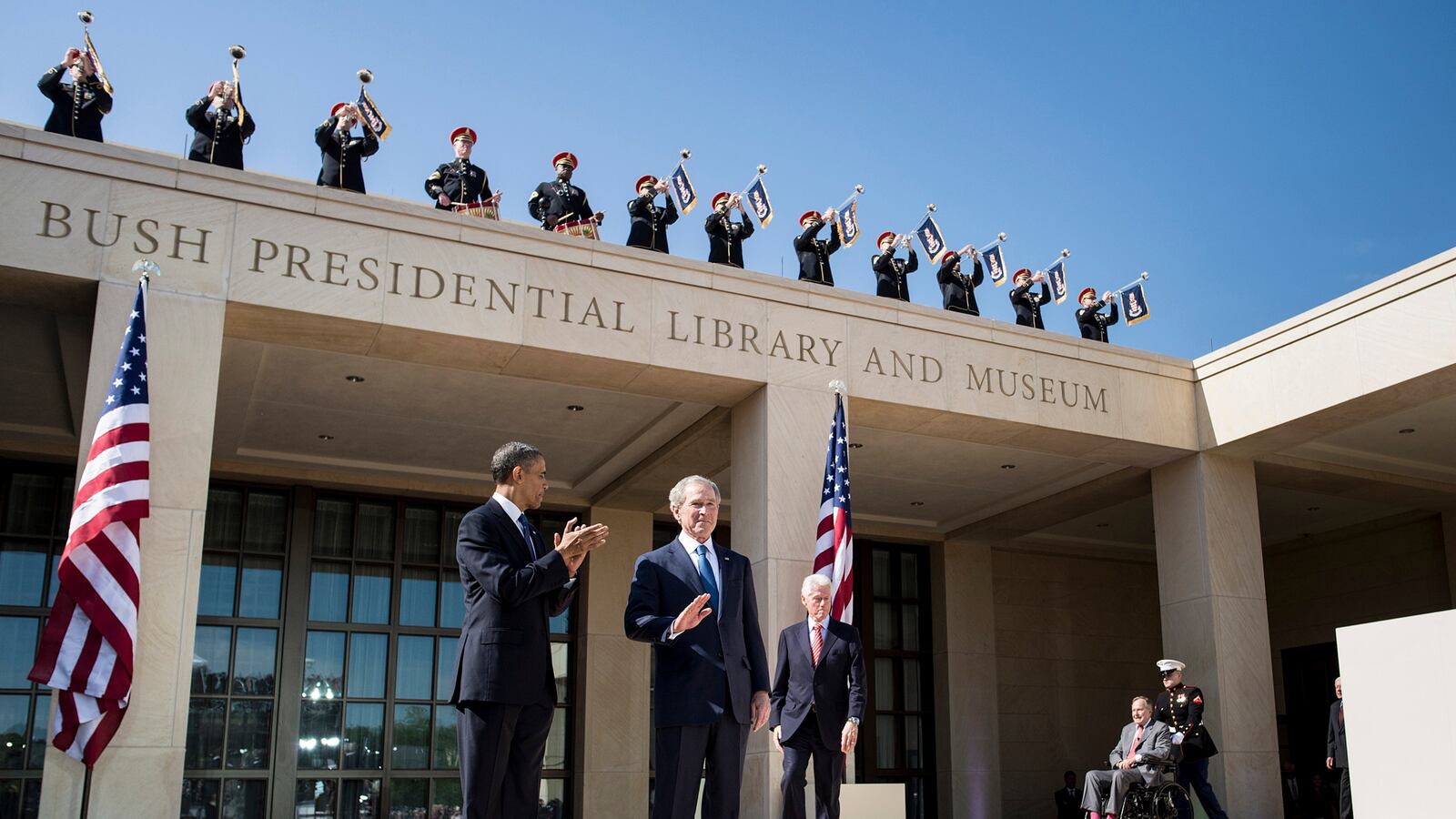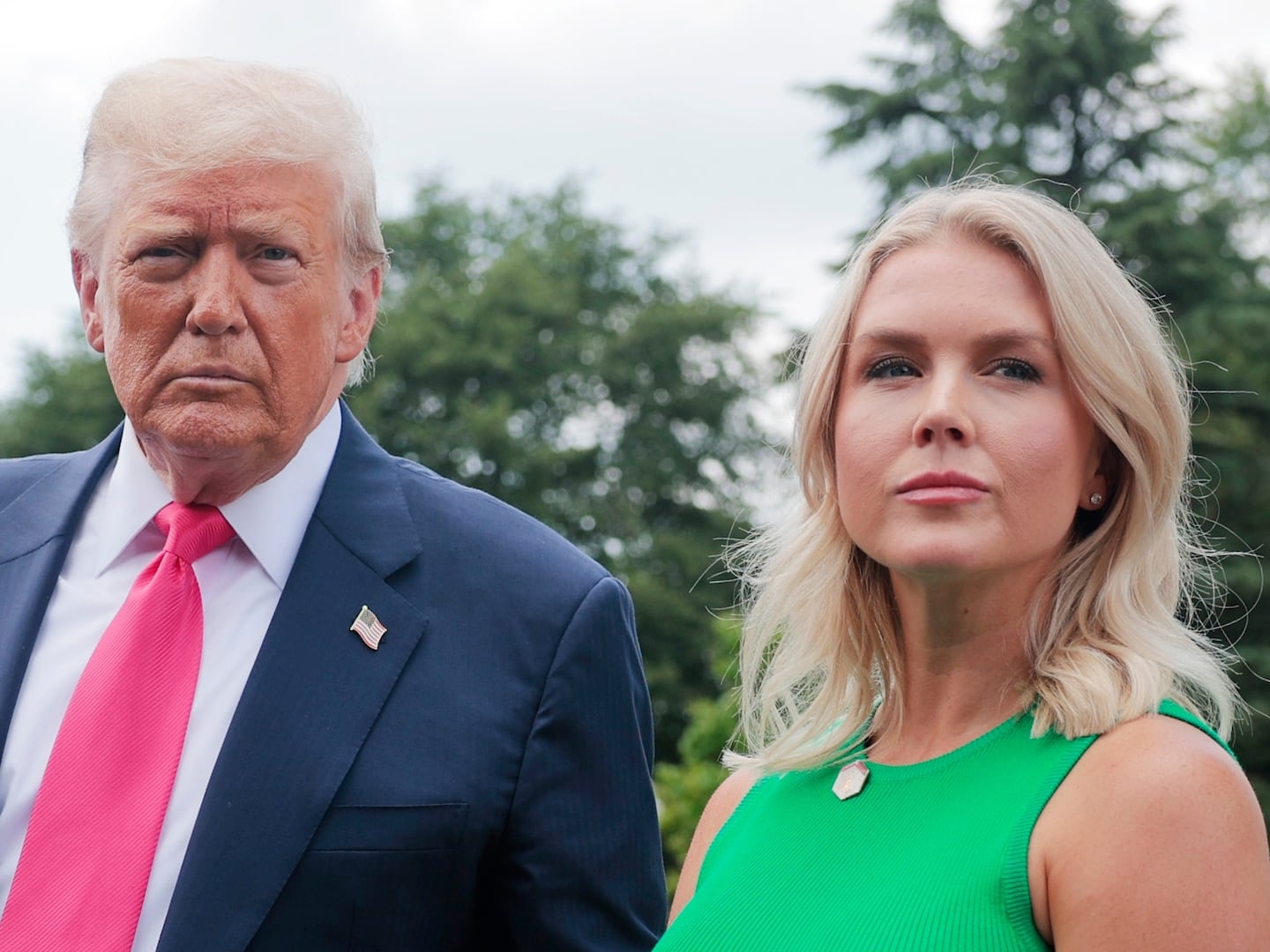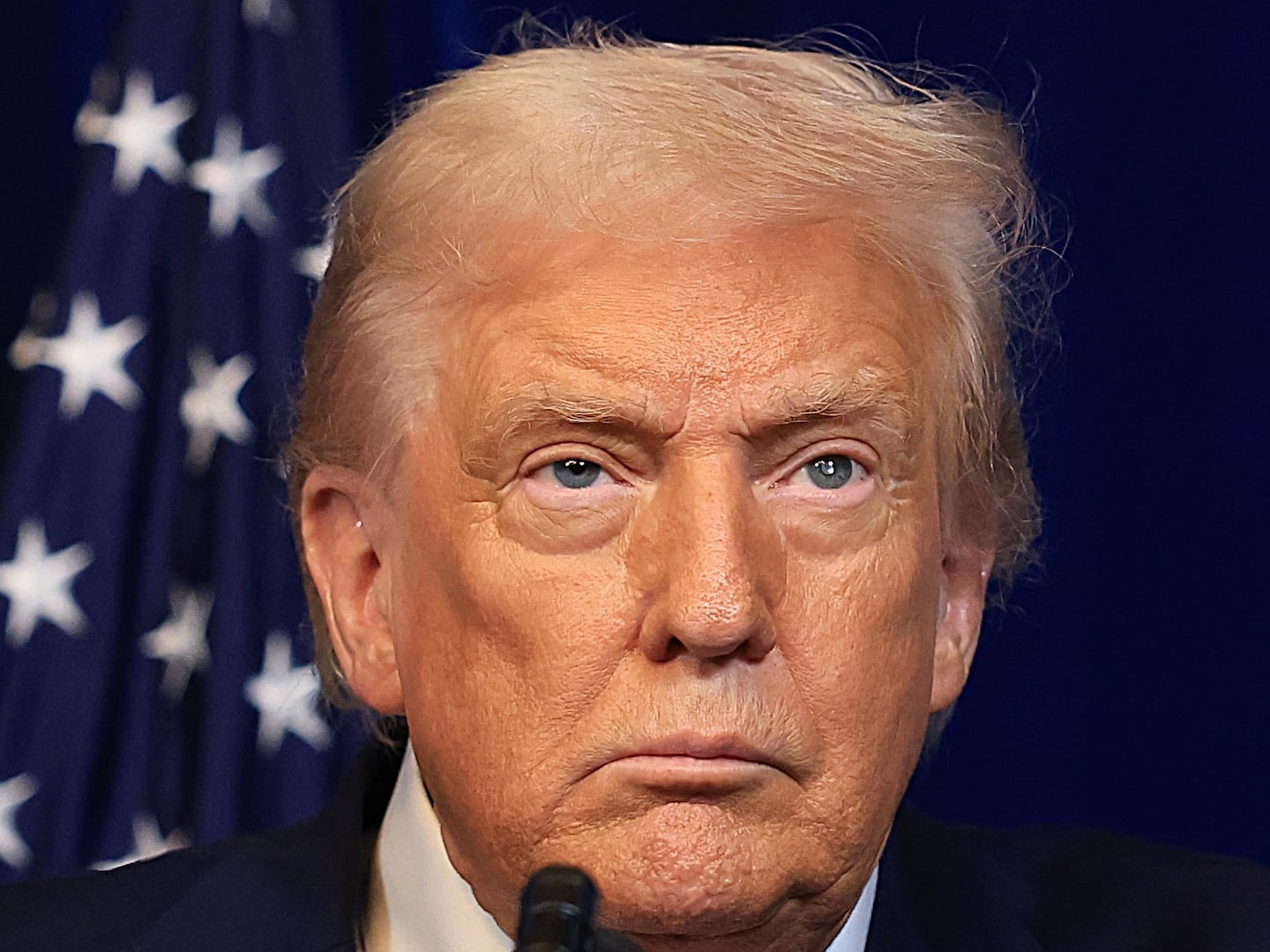History will record—whether ominously or as mild irony remains to be seen—that it was about a half an hour into the dedication of George W. Bush’s library, at this first gathering of our five living presidents in five years, that word moved across the wires that Chuck Hagel had said that we had reason to believe that Syria had used chemical weapons against its own people.

History might remember this coincidence ominously because, of course, Barack Obama has said that Bashar al-Assad’s use of chemical weapons against the Syrian people would cross a red line. Well, it’s been crossed. Shortly after Hagel’s slightly wiggle-roomish statement, John Kerry confirmed it in more concrete terms. So what do we do now? Talk about crossing red lines almost has to be followed up by some kind of action. I’d be worried if I were you.
And it’s a reminder, if only so far potentially, that a president’s fortunes can change in very unpredictable ways. Seems worth mentioning at this point that Harry Truman was cruising along in pretty good shape in the spring of 1950, somewhere in the ballpark of 50 percent approval ratings, and then lo and behold, North Korea crossed the 38th parallel and Truman was forced, by circumstances and his own previous rhetorical commitments, into war. He left office at about 25 percent, and although his rehabilitation is thorough and nearly universal these days, believe me, it took a long time. Democrats didn’t talk much about Truman when I was young.
If you suspect (or hope!) that this is the point at which I’m going to segue into a “maybe George W. Bush has been underappreciated” column, sorry. At the present moment, and certainly today here in Dallas, Bush is being wildly over-appreciated. The rub here for Dubya is not that Democrats detest him. It’s that Republicans have no use for him. How quickly people forget all that talk from so many Republicans about how “we lost our way” under Bush, the big-spending and bureaucracy-expanding statist. Republicans have almost been harder on him than Democrats have. I expect this era of good feelings to last about another 24 hours.
It’s hard to gauge these things at such events, because the media are kept pretty far away from the important people, so I don’t want to be unfair, but it didn’t seem a very high-energy conclave. Certainly from a press point of view. The media filing center had about 500 chairs. During the entire ceremony, no more than about 20 were ever full. It is true that most reporters were outside, herded into a space from which you couldn’t see anything, but when I was walking around that area before it started, I saw no swarm of journalists.
All the congenial things the three Democratic presidents said are true. He did keep his word to Jimmy Carter and help broker an end to the civil war in Sudan (Carter’s were certainly the most surprising comments, and I think they earned him a lot of goodwill for that inevitable day that they gather again to lay him in his resting place). His AIDS Pepfar program was terrific, and Bill Clinton was probably correct that “no president of my party” could have passed that. Clinton’s remarks, by the way, while soaked in that aw-shucks charm, contained a couple of little digs. Bush “didn’t know a thing” about the German health-care system. All the more effective for being entirely believable.
Obama was extremely gracious—and he isn’t always, remember. Grace is kind of a problem of his at times. But here he did precisely what a president is supposed to do. He mentioned the bullhorn moment; AIDS and malaria; Bush’s “reaching across the aisle” to Teddy Kennedy. And he effectively papered over the section on Bush’s war by just carrying on about how much they all love the military.
They were there, whether they exactly knew it or not, to assist in Bush’s attempted rehabilitation. That’s all this event was about. And even though I don’t think it will ultimately work, I admit that from a p.r. point of view the roll-out has been pretty good. There were those polls showing his approval rating up from the nadir when he left office; Bush’s people surely knew that the media, even on the enemy network MSNBC, could be counted on to remark on these polls as if the findings were interesting or even revelatory, when of course all they really prove is that some degree of nostalgia for a person who’s been out of the public eye for five years—and who presided over a set of crises that were (to some extent, anyway) different from the crises we face now—is inevitable.
The interviews, at least the ones I saw, hit all the talking points just right. The only off note was Barbara saying that Jeb shouldn’t run. That one sentence—“there are a lot of great families, and it’s not just four families or whatever”—was surely aimed in part at Hillary, but even so, an odd verdict to render. All in all, though, everyone hit their marks.
Having Condi speak—the only one of that crowd that Americans still like—was smart. Having her acknowledge world leaders was clever. It never occurred to me that any world leaders would be here, and I imagine I’m not alone on that, so that probably surprised and impressed people, and was designed to make us think, “See, he does have respect!” It’s a major disappointment, of course, that Dick Cheney didn’t speak, but obviously that would have been madness from a p.r. perspective. I don’t know if all the war fanatics were there, Wolfowitz and David Addington and so on, but it was well-considered stagecraft not to acknowledge them. Bush could get away with acknowledging Cheney’s “loyalty, principle, strength” (yack) because that was about quieting media chatter of tension, and because it was the sort of Texas-manly thing to do.
Rehabilitation is going to be a reach for Bush because more than most presidents, he made his fate. True, he was in office when 9/11 hit, and in that sense history thrust a heavy burden upon his shoulders. (But one he should have done more about after that August 6 warning? Someday, Americans might yet know the whole story about that.) But in legacy terms, 9/11 was an incredible opportunity. Here was a moment when all the world, almost all the world, was feeling sympathetic toward America. He blew that moment terribly. Very few people beyond the conservative base are going to buy his freedom argument. The lessons of the “freedom agenda” were mostly inadvertent or tragic.
And we can only hope Americans remember them. Obama isn’t Bush, thank goodness, and he’s not surrounded by hegemony-mongers as Bush was, but we are entering a danger zone with this Syria news. I just hope that as Obama ponders his options, he remembers the lessons his predecessor still appears never to have learned.






